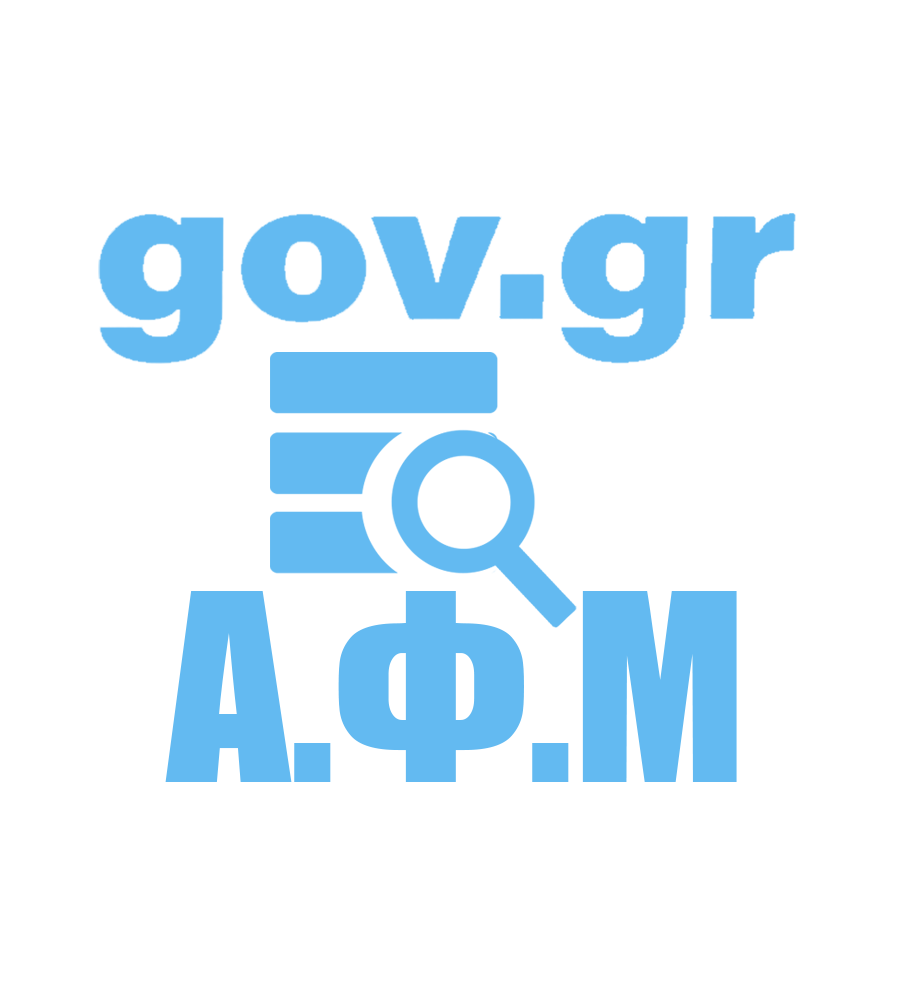Visiting Guide
before visit
trip planning
after arrival
accomodation
Before Visit

1
Find your Program of Studies
Look for a study program of your interest and if you meet the eligibility criteria. Every study program has its own characteristics and requests. Check the websites of your programs of interest, for information about the qualities and prospects of the programs, if they have tuition fees, options of distance-teaching, as well as the requested degrees and qualifications in order to be eligible for acceptance. You may try the application process of specific programs of your interest, as most of them are free to apply.
You can find a list of all English-speaking international students’ programs in University of Crete here.

2
Check the destination area
Check for other factors of interest, such as the cost of living and special characteristics of the visiting area. The island of Crete is considered a beautiful, exciting and affordable place to live, with lots of interesting natural and cultural sights. Rethymno and Heraklion, the location cities of University of Crete’s programs, are very safe and buzzing with life, filled with cafeterias, restaurants and nightlife. In most cases you can find everything within walking distance and many places for affordable and tasty food. The following page I would say presents a good estimation or it could be even cheaper in many cases:
- https://www.numbeo.com/cost-of-living/in/Rethymno-Greece
- https://www.numbeo.com/cost-of-living/in/Heraklion
Please notice that in both Heraklion and Rethymnon, the University campuses lie outside the city. City bus connection is regular during working hours.
City bus schedule can be found on following pages:
- For the western part of Crete, Chania and Rethymno areas, you can visit https://www.e-ktel.com/en/
- For the eastern part of Crete, Heraklion and St Nikolaos areas, you can visit here.

3
Apply and get accepted
Your journey starts as soon as you apply for a program of your interest and get accepted. The department of the program will give you a certification of acceptance, or eligible acceptance in case you need to apply for a visa (usually non-EU residents).

4
Visa, if needed
If your country of origin is not an EU Member, you are advised to contact the Greek Embassy or Consulate in your home country for entrance regulations prior to your departure.
If you are a student accepted for full-time study at the University either for a full degree program or through a student exchange program, you will need a student visa issued by the Greek embassy or consul in your country of residence. To obtain this visa you will need a letter from the University which states the reason for your visit and the duration of your stay.
Researchers will need a Type D visa issued by the Greek embassy or consul in your country of residence. You will need the hosting agreement and an invitation letter from the University of Crete.
Family Members: All students and researchers (EU & non-EU citizens) planning to bring their families here for the duration of their studies / contract are advised to bring with you documents required by the Greek public services. These are: copies of your marriage certificate and the birth certificates of your children which have been verified as true copies – ie stamped with an Apostille stamp by the authority that issued the certificates in your country. This should be done prior to arrival.
Note: entry with a tourist visa is not acceptable for students /researchers accepted for studies/ a contract at the University of Crete.
After Arrival
Your initial entry visa is a 3-month single entry visa.
On arrival, if your study/contract period is longer than 3 months, you will need to apply for a residence permit which will be valid for the duration of your studies/contract and, for researchers accompanied by their families, a permit for each family member.
Applications for residence permits are made at the Immigration Office of the Muncipality – in Heraklion and in Rethymno
Apart from the residence permit, Researchers from EU countries and from non-EU countries will need to follow a number of specific steps for tax registration, renting a house, your employment contract, opening a bank account, health and social insurance procedures and related matters.
For further information see the step-by-step information and advice contact us at any time before or after your arrival.

5
Find a place to stay
Crete is a very popular destination and accommodation options have become a bit scarce, but after some research, the majority of visiting students and researchers find a place to stay.
One of the problems is that after Airbnb was introduced, many homeowners prefer to have their places available for tourists in the summer and do not offer a full year stay. On the positive side, Airbnb offers many options for a short stay and after the tourist season you can find many places in renovated condition.
The University’s International Relations Office could offer some guidance, however most visitors usually find solutions in popular forums and pages.
detailed info for accomodation here
trip planning
The island of Crete has two airports and three ports. Airports are most common for international travellers, while ports are helpful for people visiting with ferry boats from Athens.

By air
There are airports in Heraklion (airport code: HER) and Chania (airport code: CHQ) with direct regular flights to/from Athens airport (duration 45 minutes), which is the main international hub for Greece. There are also regular flights to/from Thessaloniki and other domestic routes. Daily domestic and connecting flights are provided by Aegean Airlines and Olympic Air. During the summer months there are direct charter flights to airports in Crete and to most major European destinations.
There is a bus service and taxi rank at Heraklion airport. Rides between the airport and the city centre take approximately 10 minutes.
By ferry
There are daily ferries between Heraklion and the mainland port of Piraeus. Daily ferry services are also available directly between Piraeus to/from the Souda port in Chania. For information on schedules and prices, please visit the Minoan Lines and ANEK Lines websites.
By bus & ferry
The public bus service, KTEL, has combined bus-ferry schedules running daily to/from Heraklion and major towns in mainland Greece. For timetables and prices, please visit the inter-city KTEL website.
Getting to the University Campus in Rethymno (Gallos)
The Schools of Philosophy, Education and Social Sciences are located at the University’s Gallos Campus in Rethymno:
Rethymnon is located 90 km west of Heraklion and 70 km east of Chania, linked by the island’s main east-west highway. Journey time from either destination to Rethymno is about an hour.
If you are arriving by air or sea in Heraklion or Chania, KTEL public bus service provides an economic means of getting to Rethymno. For timetables, please visit KTEL website. Taxis from Chania or Heraklion to Rethymno are also available from the taxi ranks at airports and ports.
Gallos University Campus is located about 4km from down town Rethymno. There is a regular bus service between the town and campus every 15-20 minutes. Alternatively, a taxi takes between 10-15 minutes.
Getting to the University Campus in Heraklion (Voutes)
Voutes Campus is about 10km from Heraklion city centre, at the area of Vassilika Vouton. All Departments of the School of Science & Engineering (Biology, Chemistry, Physics, Materials Science, Mathematics & Applied Mathematics, Computer Sciences,) as well as the School of Medicine and the adjoining University General Hospital are housed there.
There is a regular bus service every 15 minutes between Voutes campus and the city centre (Eleftheria’s Square), journey time about 35-40 minutes. Tickets can be purchased at kiosks next to bus stops, or ticket machines in central stops. Alternatively, a taxi takes about 20 minutes.
After Arrival

1
Obtaining a Greek cell-phone number
It is useful to have a Greek cell-phone number (it’s necessary in order to obtain residence status like AFM and Bank account). You could use your EU cell-phone in Greece until you get settled and buy a local provider’s SIM card from a local store, if you plan to use it for more than emergencies.
Mobile telephones in Greece use the same GSM system as most EU countries, Asia and Australia. This means that you can use your European cell-phone in Greece without a problem. However, for a regular use the charges will be much higher, unless you have roaming services, i.e. company services that can be used in other countries. USA and Japan cell-phones are not compatible with the EU network.
For a Greek cell-phone number, you can visit a local service provider store with your passport and ask for a SIM Card for your cellular phone. The brands in Greece are: Cosmote, Vodafone, Nova, Q-Telecom. You will also need to verify ownership of the number, which is also done in the store. Another chain of stores that offers services from multiple provides is Germanos and has wide presence.
Online request for a sim card is also available for delivery by post, though you will need a Greek address and an available Greek cell number to verify the order.

2
Getting a tax identification number (AFM)
An AFM is a number that identifies individuals and legal entities in Greece. The “Arithmos Forologikou Mitroou”, or AFM, is a fiscal number that is used throughout Greece to pay taxes, work and study.
To achieve an AFM in Greece one needs to have an official acceptance for collaboration / contract, valid passport, Visa for entering Greece and application document issued by the particular service.
For more information please check:
https://www.lexidy.com/services/greece/immigration/tax-id-number/

3
Opening a bank account
In order to open a bank account in Greece it is necessary to have an official letter of acceptance /contract issued by the host / employee, AFM, valid passport, Residence proof (renting contract , electrical bill, phone bill) and Greek phone number.
For more information please check:
https://cityvalue.gr/en/how-to-open-a-bank-account-in-greece/

4
Residence permit
Regardless of visa papers, every visitor should also apply for a residence permit, apart from tourist visits up to three months (90 days). Your application will be checked and processed on the local centre of permits.
The permits authority will guide you on the requested process depending on your visa and visiting status. However, the most usual steps are the following:
- Issue a permit fee ticket (called para’volo in Greek)
You can do this online, through this webpage:
https://www1.gsis.gr/sgsisapps/eparavolo/public/create.htm?langId=2
or by visiting the Municipality customer service center (called KEP).
Rethymno location: https://goo.gl/maps/vqhpbeS6hbqnpQmy8
Heraklion location: https://goo.gl/maps/czjH6kCMdTz27mJi6
In most cases the ticket of administrative fees is of the code 2107 and the amount should be 150€.
- Pay for the ticket at the nearest bank (in Greek: tra’peza) or post office, or through e-banking.
Accommodation
The University of Crete does not provide accommodation options on campus for visiting students and staff.
Please make your plans to find what suits your needs, with the following guidelines.
Initially, start by figuring out exactly what you want. This will help you narrow down the list of options and therefore facilitate and speed up the renting process.
Think about whether you want to live alone or you want a flat mate, if you are available to share with others, what neighborhood are you interested in, how many rooms should there be, what floor is comfortable for you, and the maximum amount of money you are willing to spend for the monthly rent.
These are just some of the things you should consider before starting out the search for an apartment.
However, apart from these, there are a few other things you should know.
Let’s go through them together.
What documents do I need to rent accommodation in Greece?
Documents are truly essential when you want to rent a flat in Greece. They will help your landlord know you are a trustworthy tenant, and they will help you ensure your rights as a tenant. So, here’s what’s essential:
- A. copy of your ID or passport
- B. Tax Identification Number
- C. Tenancy agreement MA
- D. Acceptance of the tenancy agreement
Signing the tenancy agreement or simply looking at the flat (in most cases) requires you to provide a copy of your ID or passport, to either the landlord, estate agent, or both.
In order to be able to rent a flat in Greece, you will need a certification of your tax identification number (unless you are an Erasmus+ student residing in Greece for less than 6 months).
Having a rental contract is good since it ensures your rights as a tenant and elaborates on the do’s and don’ts to avoid any misunderstandings in the future. A signed tenancy agreement from both the landlord and the tenant is mandatory. The Agreement has to be written in English, otherwise, it is invalid.
Up to 30 days after signing the tenancy agreement, your landlord has to declare it to the Taxisnet portal in order for you to accept it.
How do I find accommodation in Greece?
Some of the most common ways of renting are:
- A. Renting through an estate agent
- B. Renting without an estate agent
- C. Available online property portals
- D. Through Study in Greece
You can rent an apartment through an estate agent, but it usually comes at a price. Estate agents are hired by owners to help in selling or renting their apartments or houses. However, fees are included for the services provided by the agents.
But you’re not always the one to pay the commission, unless you’re planning on buying a property. So, when it comes to renting, the landlord usually pays the commission, that’s why people usually prefer using websites instead of employing an agent. However, before signing any agreement, make sure you check how these commission fees are to be paid.
After your arrival, you can go around neighbourhoods with a Greek-speaking friend, and look out for the yellow “ΕΝΟΙΚΙΑΖΕΤΑΙ” (“FOR RENT”) signs. This method might sound a little old-fashioned, but it still works. When looking at where to stay for long term, keep in mind that rental prices for apartments are negotiable. You’ll have a much better chance of arriving at a lower deal than advertised if a Greek speaking friend does the talking!
Another renting possibility is through word of mouth. It proves to be an efficient way of finding a nice and comfortable apartment. Usually, when someone wants to leave an apartment, they will suggest their friends or acquaintances to their landlords. This way, the landlord won’t have to worry about finding a new tenant, and you won’t have to worry about finding a flat.
There are various ways one can search for accommodation in Crete. You can find below a list of online pages proposed by past visitors and Erasmus students. Attention: the following are private pages suggested by past visitors and they are not affiliated to the University of Crete. Always check for scammers and fake advertisements.
- For the Rethymno area:
FOR SALE OR WANTED IN RETHYMNO – CRETE
https://www.facebook.com/RethymnoYouthHostel/
Accommodation Erasmus in Rethymno
- For the Heraklion area:
https://www.spiti24.gr/en/to-rent/property/prefecture-heraclion
https://www.facebook.com/groups/AccommodationHeraklionCrete
https://www.facebook.com/groups/255863288183521
- General pages for accommodation:
Golden οpportunity (XE)
Expats in Greece (FB group)
Study in Greece (SiG) is Greece’s official body for the internationalization of higher education and international student mobility. It helps you find the right accommodation for you. Working in close collaboration with their network of specialized external partners they provide a variety of housing options to students of all programs.
Visit the Study in Greece Helpdesk: https://helpdesk.studyingreece.edu.gr for further help and information.
What does the rental contract contain in Greece?
Having a rental contract is good since it ensures your rights as a tenant and elaborates on the do’s and don’ts to avoid any misunderstandings in the future. Some of the components rental contracts usually contain are:
- Duration of the agreement (stating the start date and the termination date)
- Deposit amount
- Amount of monthly rent
- Amount of additional costs, depending on your use
- Rent increases information
- A complete list of furniture, if you rent a furnished apartment
- Compliance with the regulation of the apartment building
- House rules set by the landlord, regarding the repair expenses they will and will not cover
- Notice length (minimum one month, if you or your landlord wants to cancel the agreement)
- Consequences of infringements
What’s the cost of renting in Crete?
Average renting prices are usually set as a cost per square meter. However, the prices you will get will vary depending on where you’re planning to live in. Locations close to the universities usually have higher prices in comparison to those further away.
When it comes to deposits and utilities in Greece, one is expected to pay a deposit that is equal to two months’ rent. It should not be more than this amount. The security deposit serves as the purpose to make sure the tenant returns the property to the owner in the same condition it was received when rented. The utilities (electricity, water, gas, telephone), on the other hand, are usually not included in the rent and this should be mentioned in the rental contract.
On top of these utilities, most blocks of flats have some standard costs, which are divided among the tenants. These costs include the cleaner, gardener, elevator maintenance, electricity for the common areas (staircases, corridors) etc. We call them kinohrista.



